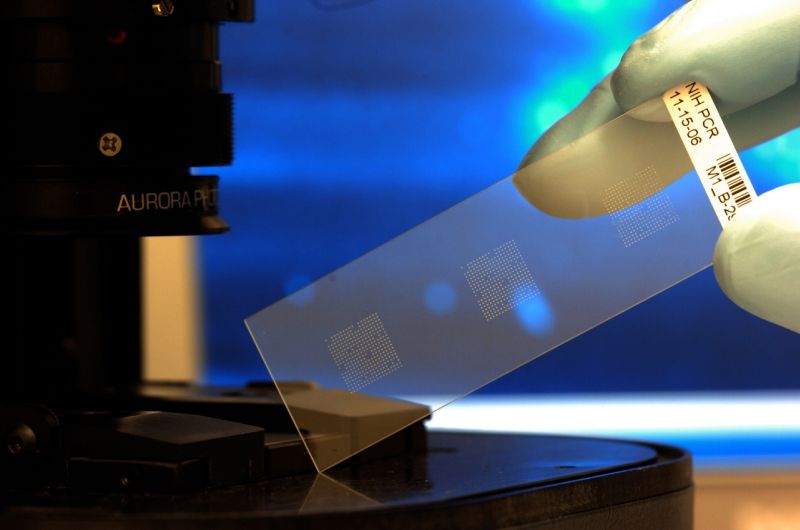Implants
Eventually, brain implants will become as common as heart implants. I have no doubt about that - Miguel Nicolelis

image by: Argonne Laboratory
HWN Recommends
The Future of Bioelectronic Medicine
Scientist Kevin Tracey hopes that people afflicted by disease someday won’t have to take pills and worry about the side effects. Instead, they’ll have tiny devices implanted below the skin that help the body to heal itself.
Dr. Tracey, 58, is president of the Feinstein Institute for Medical Research in Manhasset, N.Y., and he has been studying the idea for almost two decades. His field is bioelectronic medicine, which tries to harness the electrical signals sent out by the nervous system to control the behavior of cells.
In his latest study, published…
Resources
 How electricity could replace your medications
How electricity could replace your medications
Neurosurgeon and immunologist Kevin Tracey shares the frontiers of a new, hybrid field - bioelectronic medicine.
An Electrical Off-Switch for Disease
Stimulator devices can tweak nervous system activity to turn down inflammation or treat other effects of disease.
Brain-Altering Devices May Supplant Drugs -- And Pharma Is OK With That
The idea behind bioelectronics is to place devices in various parts of the body to stimulate nerves, which would in turn send signals to specific organs, essentially reversing disease states. GSK has taken a leading role in fostering bioelectronics R&D...
Can the Nervous System Be Hacked?
Today researchers are creating implants that can communicate directly with the nervous system in order to try to fight everything from cancer to the common cold.
Electroceuticals: swapping drugs for devices
Research teams across the globe have realised that by targeting individual nerve fibres or specific brain circuits they may soon be able to treat a wide range of conditions that have formerly relied on drug-based interventions.
GSK Has The Nerve To Innovate Medicine
GSK is quietly building a new treatment pipeline, in parallel to its established work on molecular medicines, that hopes to use peoples’ nerves to treat disease. If successful, it could not only revolutionize its product offering, but change the very way we think of medicine.
The Body Electric
Bioelectronic medicine (BEM) is the most recent medical revolution — not an innovation or an improvement or a step up but a radical reimagining of our understanding that it should be possible to treat human illnesses using electrical signals to replace some drugs.
The Implant That Helps Fight Cancer
How the medical port, placed under the skin to facilitate the flow of drugs, makes chemotherapy a part of a patient's body.
Tiny Electronic Implants Treat Arthritis, Diabetes and Obesity
Bioelectronic devices surgically implanted on nerves interfere with and change the body’s own processes to make them function better.
 The Future of Bioelectronic Medicine
The Future of Bioelectronic Medicine
Kevin Tracey, president of the Feinstein Institute for Medical Research, on the future of implants that use electrical signals to help the body heal itself.
4 Medical Implants That Escaped FDA Scrutiny
A substantial number of risky devices are cleared for medical use without clinical testing, including some hip implants, surgical mesh, heart valve rings and defibrillator leads.
Bioelectronic medicine
Bioelectronic medicine combines molecular medicine, bioengineering, and neuroscience to discover and develop nerve stimulating and sensing technologies to regulate biological processes and treat disease.
Feinstein Institute for Medical Research
Bioelectronic medicine is a scientific discipline that brings together molecular biology, neurophysiology, neurotechnology and analytics to develop nerve-stimulating technologies to regulate the molecular targets underlying disease. This approach promises to deliver therapies superior to pharmaceuticals in terms of efficacy, safety, and cost, without significant side effects.

Introducing Stitches!
Your Path to Meaningful Connections in the World of Health and Medicine
Connect, Collaborate, and Engage!
Coming Soon - Stitches, the innovative chat app from the creators of HWN. Join meaningful conversations on health and medical topics. Share text, images, and videos seamlessly. Connect directly within HWN's topic pages and articles.














